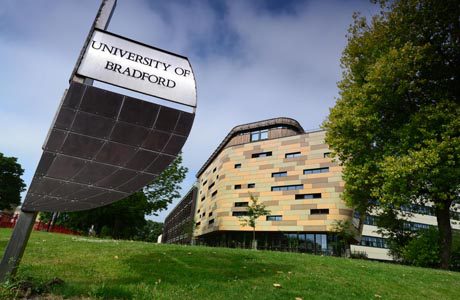
Resource management firm Veolia has increased low carbon generation for the University of Bradford (UoB) by over a third by designing and installing an additional 525kWe combined heat and power (CHP), unit. This new CHP adds to the existing 1.4MWe capacity, estimated to save more than £8 million in energy costs over 20 years.
To put their focus on sustainability into practice the University of Bradford developed the Ecoversity programme in 2006 to embed sustainable development across its estate which serves over 10,000 students. By using the latest CHP technology, they will now save a total of 2,600 tonnes of CO2 emissions per year, which will help meet the higher education and Government carbon reduction targets. This also supports the University’s ambitious university wide initiative, the Bradford:50@50 programme, which aims to close out the University’s 2020 carbon reduction target 5 years early in the university’s 50th Anniversary year.
Educational and research facilities at universities have constant heat and electricity demands throughout the day, which in turn, can produce high-energy bills. These can compromise budgets that can be allocated to core educational needs, facility upgrades and investment in educational materials. The UoB has worked closely with Veolia to provide this cost effective electricity and heat generation on-site to serve the University’s campus through the implementation of the CHP technology.
Commenting on the new installation, Gavin Graveson, Veolia’s COO Public and Commercial said,: “With the further and higher education sector growing, the energy consumption of universities is also growing, so it makes sense to look at energy savings that can give additional funds for teaching. Veolia is committed to help lower the sector’s £400million annual energy bill, and at the same time secure the energy needs and lower the carbon footprint of campuses. This latest extension to the CHP capacity at the University clearly demonstrates their ambitions.”
Russell Smith, University of Bradford’s Head of Estates commented, “Veolia was selected as part of a procurement process on a cost, performance and quality basis. The team has met with the challenges of the installation, and the additional CHP is a step closer in achieving the University’s ambitious carbon reduction target of 50% early. Since the first unit has been operational there has already been periods when it has supplied all of the University’s electricity and therefore reduced the dependency on the grid which is an University aim to significantly reduce dependence of grid supplied electricity as well as close out our 2020 carbon reduction target early”
As CHP units utilise the heat produced in electricity generation to provide hot water they are more efficient and sustainable, provide energy security and takes the power load off the UK electricity infrastructure. The result is a form of generation that is both cost-effective and reduces carbon emissions significantly.







